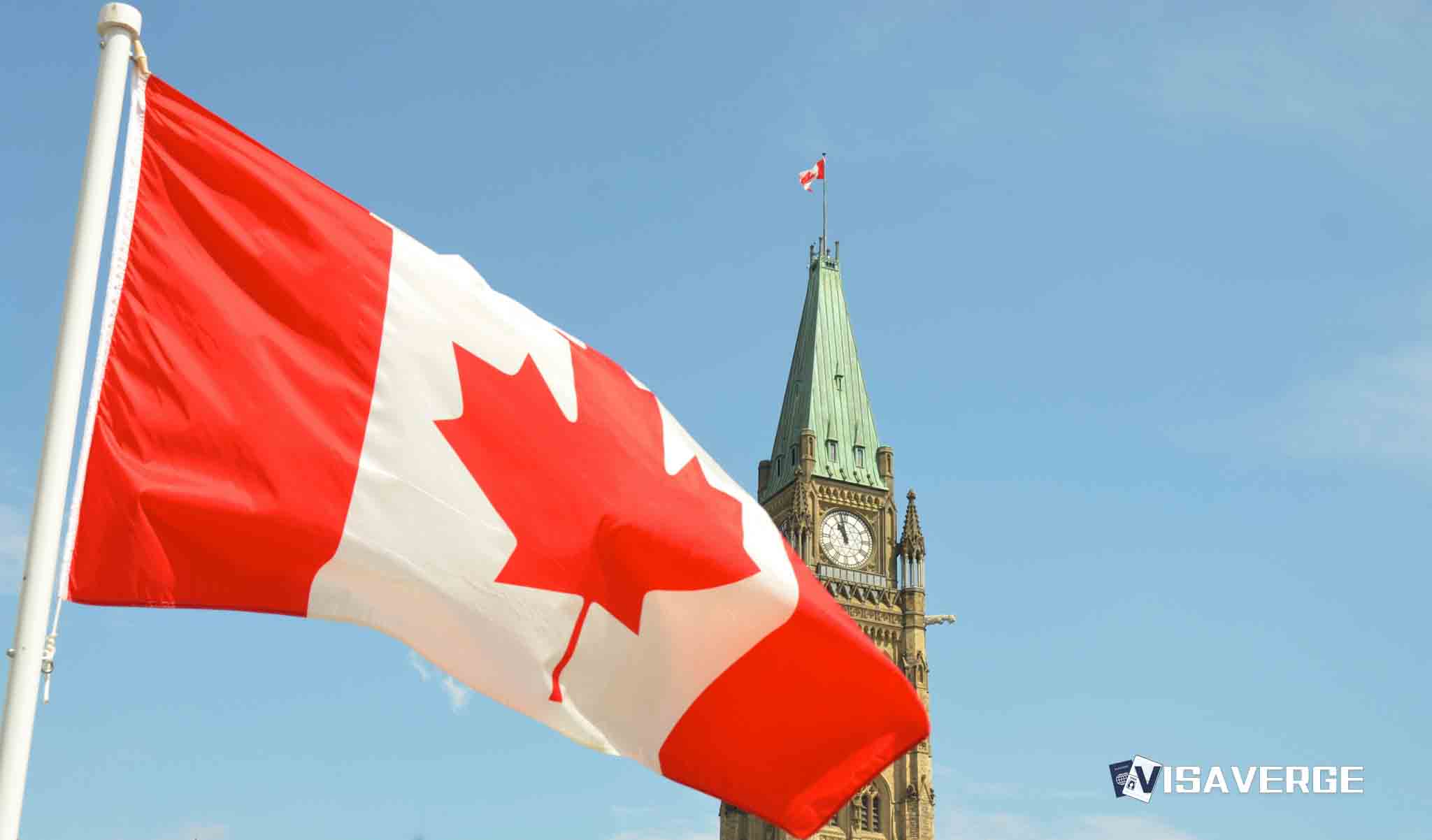Understanding the Rise in Phone Scams Targeting Indo-Canadians
In recent times, the Indian community in Canada has found itself amidst a worrying increase in phone scams, with Indo-Canadians receiving threatening calls that have caused widespread concern. As connections between India and Canada encounter turbulent times, particularly after the Khalistani terrorism incidents, the safety and peace of mind of Indo-Canadians have become an urgent issue.

The Disturbing Trend of Extortion Calls
Business owners of Indian origin in Canada are particularly vulnerable, falling prey to extortion schemes. Miscreants carrying out these terrifying phone scams targeting Indo-Canadians are demanding large sums of money and issuing serious threats. Such experiences have left the Indo-Canadian community in fear and in desperate need of a solution.
“The Indian government contacted the Canadian government regarding the matter and conveyed that the reporting of Indians getting extortion calls in Canada needs to be dealt with,” reportedly stated an official source. Evidently, the diplomatic channels are active as both nations seek to protect their citizens from such malicious activities.
The Official Response to the Scam Calls
The alarming number of scams has prompted the Indian community to seek stronger measures and protection from local authorities. Nine official incidents have been reported recently, a statistic that cannot be ignored. Both the affected community and the Indian government are advocating for an end to these predatory practices.
How to Protect Against Scam Calls in Canada
For Indo-Canadians and all residents, awareness and proactive defense against scam calls are essential. Here are some critical steps to enhance your protection:
- Do Not Share Personal Information: Be wary of unsolicited calls asking for personal or financial details.
- Verify Caller Identity: If a call claims to be from a legitimate entity, hang up and call back using an official number.
- Stay Informed: Familiarize yourself with common scam tactics and stay updated on new scams.
- Report Suspicious Calls: Always report threatening or suspicious calls to the Canadian Anti-Fraud Centre or local authorities.
- Use Call-Blocking Features: Utilize your phone’s call-blocking function or third-party apps to filter unwanted calls.
The community can also find support and guidance on this issue from immigration experts and local community organizations that often provide resources for newcomers adjusting to life in Canada.
The Indo-Canadian Community’s Call for Action
Despite the strife, the Indo-Canadian community remains resilient. However, there is a collective outcry for affirmative action from the Canadian government to ensure their safety and well-being. There is an expectation for robust governmental intervention to curb this surge of fraud and protect the affected individuals from the undue stress caused by these incidents.
Final Thoughts
It is imperative that the Indo-Canadian community remains vigilant and united in the face of this adversity. Both the Canadian and Indian governments must continue to work closely to address these threats effectively. In doing so, they will not only be protecting citizens but also reinforcing the bonds between the two nations, ensuring the safety and security of everyone involved.
Remember, in times of fear and uncertainty, knowledge is power. Stay informed, stay safe, and together, we can combat the rise of phone scams in the Indo-Canadian community.
Did You Know?
Did You Know?
- Immigration is not a new phenomenon in Canada. The country has a rich history of immigration, with waves of settlers arriving from various parts of the world dating back to the early 17th century.
- Canada has one of the highest immigration rates in the world. In fact, approximately one in five Canadians was born outside of the country, making it one of the most culturally diverse nations globally.
-
The majority of immigrants in Canada come from Asia. While many people assume that most immigrants in Canada come from Europe, the reality is that Asia has become the primary source region for immigration in recent years. This shift is reflective of the global trends in migration and Canada’s efforts to attract highly skilled workers.
-
Canada has a point-based immigration system. Unlike many countries that prioritize family connections or job offers, Canada uses a point-based system to assess potential immigrants. This system evaluates factors such as education, language skills, work experience, and age to determine an applicant’s eligibility.
-
Refugees play a significant role in Canada’s immigration system. Canada has a long-standing commitment to refugee protection and resettlement. In recent years, the country has welcomed thousands of refugees fleeing conflict and persecution, offering them a safe haven and a chance to rebuild their lives.
-
Canada has official multiculturalism. In 1971, Canada became the first country to adopt an official policy of multiculturalism. This policy recognizes and celebrates the cultural diversity of the nation and promotes equal rights and opportunities for all citizens, regardless of their cultural or ethnic background.
-
Canadian citizenship provides numerous benefits. Becoming a Canadian citizen offers a range of advantages, including the right to vote in federal and provincial elections, access to government healthcare and social benefits, and protection under Canadian law.
-
Canada has programs to attract international students. In addition to welcoming immigrants, Canada also actively recruits international students. The country offers high-quality education, affordable tuition fees, and opportunities for work and immigration after graduation through programs like the Post-Graduation Work Permit.
-
Immigration has a positive impact on Canada’s economy. Numerous studies have shown that immigration contributes to economic growth in Canada. Immigrants bring diverse skills, innovation, and entrepreneurial spirit, helping to create new jobs, drive innovation, and foster cultural exchange.
-
Canada has regional immigration programs. While many immigrants settle in major cities like Toronto, Vancouver, and Montreal, Canada also has regional immigration programs that aim to attract newcomers to less populated areas. These programs help to distribute the benefits of immigration more evenly across the country.
Remember, these captivating and lesser-known facts about immigration in Canada highlight the country’s rich history, diverse population, and the numerous opportunities it offers to newcomers. Exploring these facts can deepen our understanding of the immigration experience and promote a more inclusive and informed society.
Learn today
Glossary:
- Phone scams: Deceptive schemes conducted through telephone calls where scammers attempt to obtain personal or financial information from individuals by posing as legitimate entities or making false claims.
- Indo-Canadians: Individuals of Indian descent who are residents or citizens of Canada.
-
Extortion: The act of obtaining money, property, or services through coercion or threats.
-
Miscreants: Individuals who engage in unethical or criminal behavior.
-
Khalistani terrorism: Refers to acts of terrorism committed by individuals or groups advocating for an independent Sikh state called Khalistan in the Punjab region of India.
-
Diplomatic channels: Refers to the means of communication and negotiation between governments or international organizations.
-
Local authorities: Refers to law enforcement agencies and government bodies at the local or municipal level.
-
Predatory practices: Unethical actions carried out to exploit or harm others for personal gain.
-
Proactive defense: Taking preventive measures and being actively engaged in protecting oneself against potential threats.
-
Canadian Anti-Fraud Centre: A Canadian organization dedicated to preventing fraud and providing assistance to victims of scams and fraudulent activities.
-
Call-blocking function: A feature available on some phones that allows users to block incoming calls from specific numbers.
-
Governmental intervention: Actions taken by the government to address a specific issue or problem.
-
Affirmative action: Intentional efforts taken to promote equality and provide assistance or opportunities to underrepresented or disadvantaged groups.
-
Undue stress: Excessive or unnecessary mental or emotional strain.
-
Vigilant: Being watchful, attentive, and alert to potential dangers or threats.
-
Resilient: The ability to recover and adapt quickly from difficult or challenging situations.
-
Bonds: A connection or relationship between two parties, in this case, between the Indo-Canadian community and the Canadian and Indian governments.
-
Safety and security: Refers to the condition of being protected from harm, danger, or risk.
-
Knowledge is power: The idea that having information and understanding can give individuals the ability to make informed decisions and take effective action.
This Article in a Nutshell:
Indo-Canadians are facing a rise in phone scams, with threats and extortion calls causing concern. The Indian and Canadian governments are working together to address this issue. Protect yourself by not sharing personal information, verifying caller identities, staying informed about scams, reporting suspicious calls, and using call-blocking features. Stay strong, stay safe!
So there you have it, folks! The rise of phone scams targeting Indo-Canadians is a serious concern, but we can fight back with knowledge and proactive measures. Want to dive deeper into this fascinating topic and learn more about protecting yourself from scam calls? Head over to visaverge.com for all the info you need. Stay savvy, stay safe, and remember to keep those scammers at bay! 😄📱💪









So members of the indian government run phone scam call centers and will do absolutely nothing resembling shutting them down,they prey on the elderly ,wipe out peoples retirement savings,con anyone who answers the phone ,cause suicides,bankrupcy’s and hardship all the while laughing as they do it.So someone scam calls an indo-canadian and the thieving ,scamming indian government demands that the canadian government does something about it.So it is OK for indian call centers to destroy peoples lives ,but not ok for indo-canadians to be scammed.This whole scam based enterprise is filthy and disgusting no matter who gets robbed.The sickest thing of all is the fact that Indian government individuals are the ones behind scam call centers and look the other way while crime is committed against canadians.So if you want our governments help in protecting indo canadians then stop allowing indian scam call centers to openly prosper with complete impunity